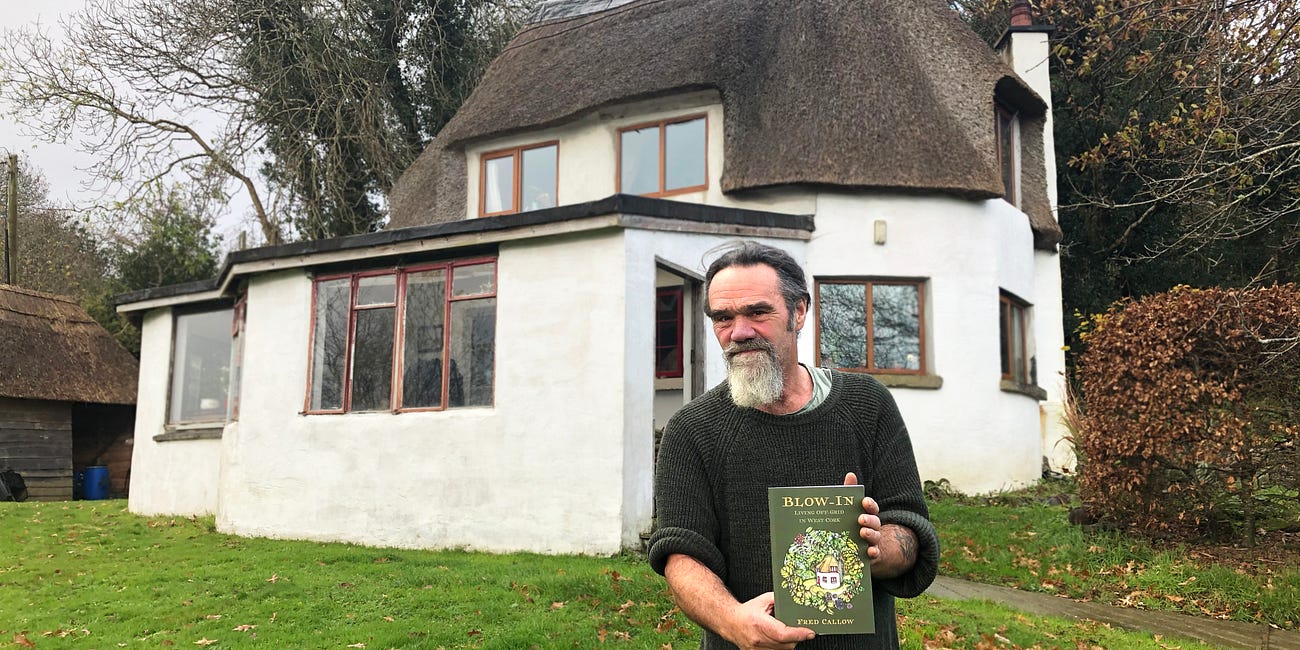In an eco-village in West Cork, the focus is practical with magical results
Set in rolling hills near Enniskeane, the Hollies is a place to get your hands dirty while filling up on practical wisdom like this: “Start small and don’t overthink it.”
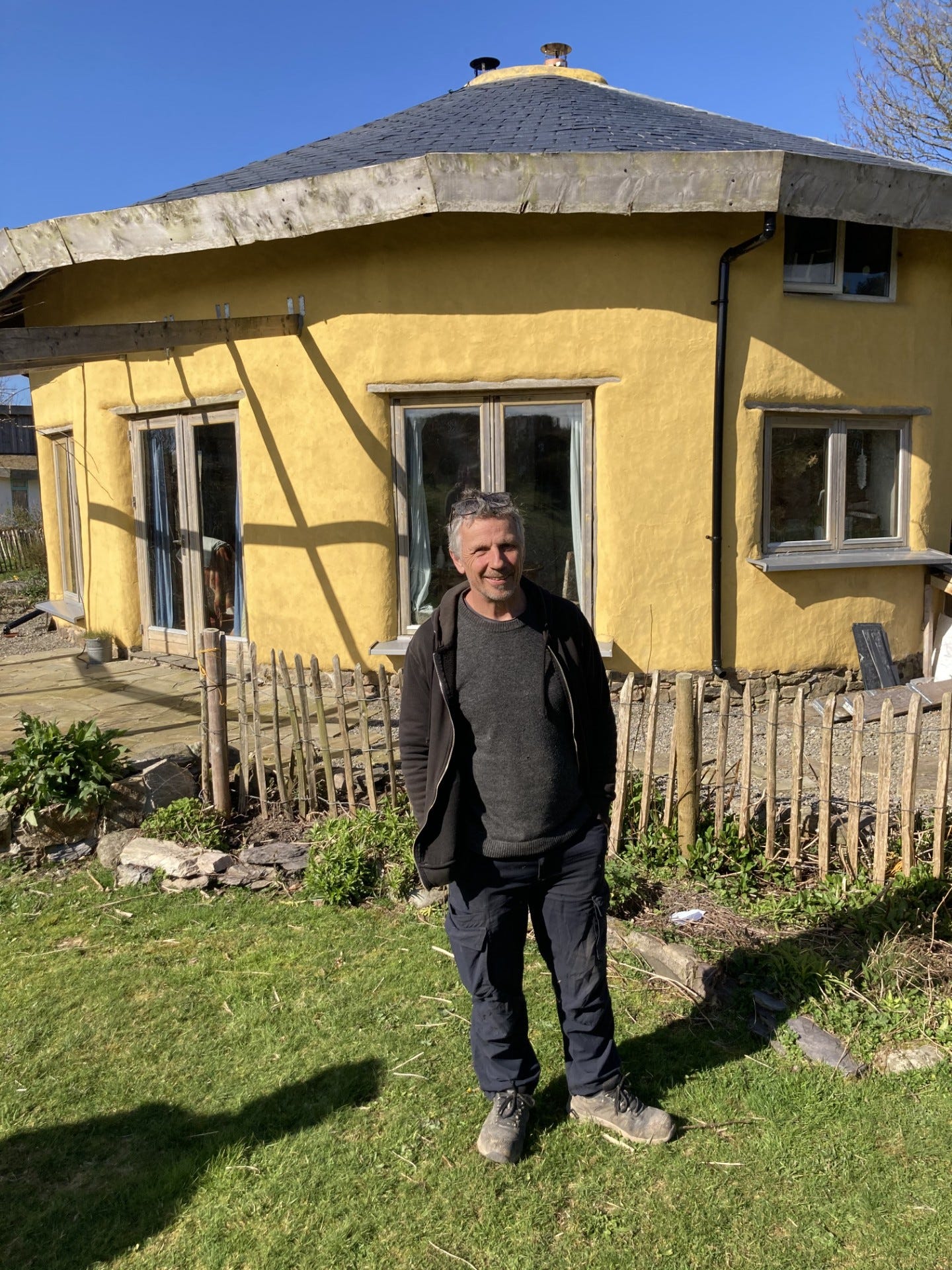
I first heard of The Hollies a couple of years ago from a friend of mine who attended one of their courses on wild food foraging. He enjoyed the day so much, the following year he returned again for an intensive week-long course in cob building, and has been encouraging me to visit ever since.
The Hollies is an educational centre for sustainable living, located just outside the small village of Castletown Kinneagh, about fifteen minutes drive west of Bandon. It was set up in 2005 by Thomas and Ulrike Riedmuller and as part of having a charitable status, The Hollies provides year-round courses in everything from herbal medicine, to how to build your very own pizza oven.
Last Sunday morning, my friend and I took off from Cork city bright and early and headed down to the picturesque eco-village, surrounded by rolling hills and woodland, to take part in a course on how to start a vegetable garden from scratch. While neither of us could claim to have a whole pile of experience in gardening, we were still both keen to pick up a few tips on how best to begin.
We were met in the yard of the Hollies by John Conway, originally from Newcastle West in County Limerick, but living and teaching courses at the centre for the past twenty years’ John took us inside one of the many cob structures for a cup of coffee, while we waited for the other course attendees to arrive.
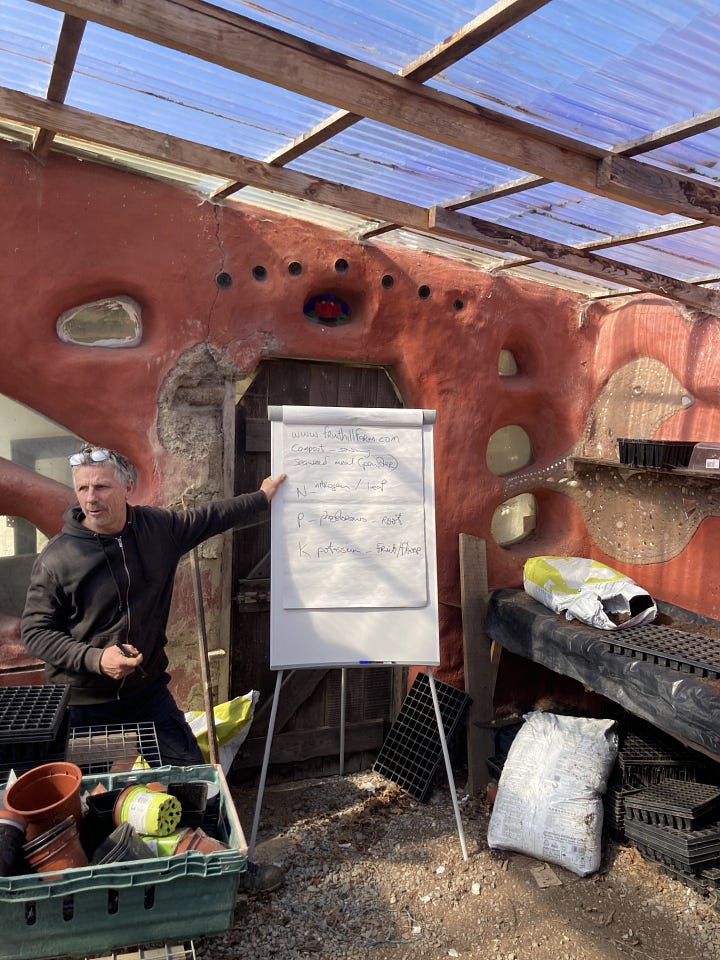
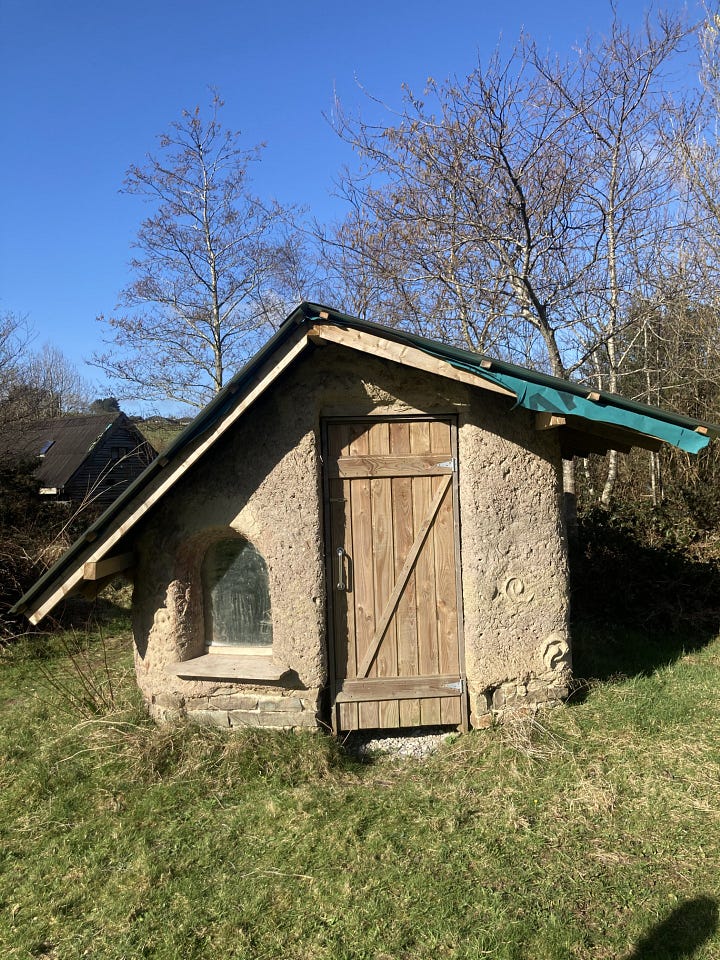
“Start small and don’t overthink it” is the advice John gave at the start of the course, which primarily focuses on the no-dig garden method. This approach to growing your own vegetables, centers around leaving the soil untouched as much as possible and feeding the vast numbers of living organisms in the soil with organic matter on the surface.
In practice, this simply means placing a layer of cardboard over the area you want to plant in, covering it with compost or well rotted manure and finally, adding a layer of straw on top. You then leave nature to take its course and the land will mimic the natural process of decomposition and all going well, you will be left with a bed ready for planting in.
John showed us all these steps in the garden of The Hollies, and really sought to demystify the act of gardening as much as he could. We saw how easy it is to plant in this soil once it has all broken down, how you can place your hand way down into the ground and we were also given the chance to plant a few potatoes and some garlic.
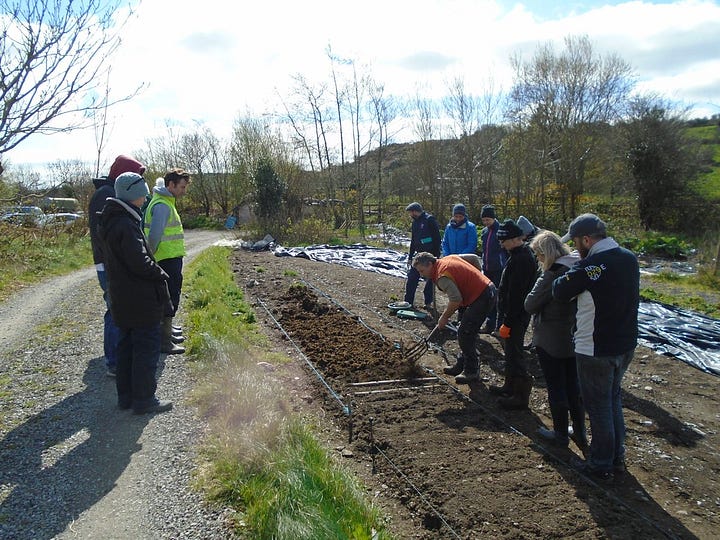
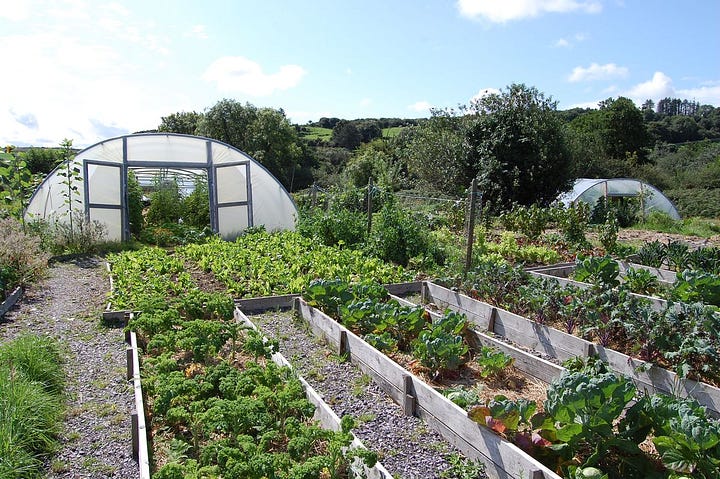
Throughout the day, there was a lot of discussion and practical solutions to maintaining your garden, especially against the threat of slugs and weeds. “It’s not possible to get rid of these things” John said, “it’s just a matter of trying to control them as best you can.”
This means regular hoeing of the surface of the bed and planting flowers such as marigold or borage to attract insects, which in turn will attract birds who will then eat eggs laid by slugs. While you might find an odd onion dug up by a curious bird as a result, “it’s a small price to pay” John said, if you’re vegetables aren’t being eaten away by slugs.
I have to say it was a thoroughly engaging course and John has a great way of sharing his vast knowledge in a clear and uncomplicated way. In stark contrast to the prevalence of experts who close off learning, whether through pointless jargon or ivory tower attitudes, John consistently emphasised that gardening should be for everyone. He was adamant there are no mistakes you can’t learn from.
As he told us himself, he is “a recovering academic” and seeks to promote learning through direct experience. And with his background in archaeology and geography some of the most enjoyable aspects of the course were the many unplanned tangents and digressions the conversation took, which took in biodynamics, the “mafia” like supermarkets destroying both the land in this country and rural communities, as well as many amusing anecdotes about his own life.
By the end of the four-hour course, we had covered a lot of ground and while there was a lot of information to try to take in, most importantly of all a path to start gardening had been laid out, and one which, anyone could attempt to progress along.
The Hollies runs a range of courses on everything from building a cob, to starting a garden from scratch, foraging for food and much else. More information here.
Pádraig O'Connor was a guest of the Hollies.
From the archive:
Cool mountain memories
Click play above to listen to the full podcast conversation with Fred Callow about his book and his life on Cool Mountain. Read on below.




